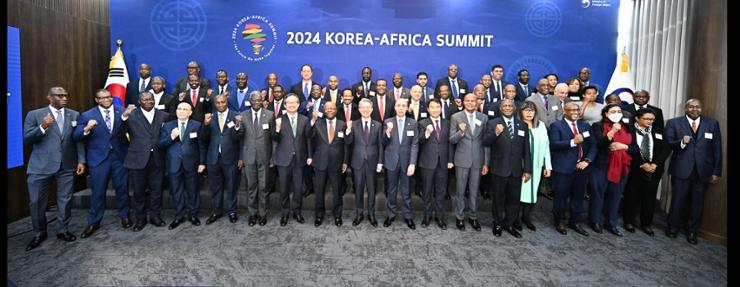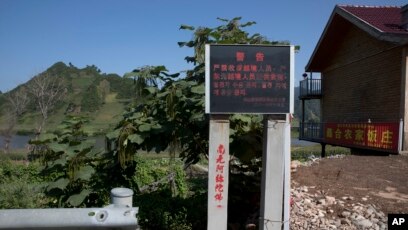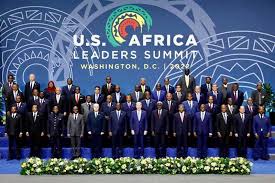World
Ending terrorism is only way Pakistan can help Kashmiris’ India

The only contribution that Pakistan can make to help the people of Kashmir is to stop state-sponsored terrorism, the Minister in India’s UN Mission, Nitish Birdi has said
He gave the indication on Tuesday while replying to the Pakistani envoy’s comment about Kashmiris needing UN humanitarian aid.
He added that Pakistan’s representative continuously misuses UN platforms to spew “malicious and false propaganda” against India “like a broken record”.
Speaking at a session of the Economic and Social Council on Humanitarian Affairs, Pakistan’s Permanent Representative Munir Akram had said that the people of Kashmir were “in dire need of humanitarian assistance” and UN has no access to them.
Exercising the right of reply, Birdi said, “The Union Territories of Jammu and Kashmir and Ladakh were, are and will always remain integral part of India. This includes the areas that are under the illegal occupation of Pakistan.”
He added, “No amount of rhetoric and propaganda from any country can deny this fact.
World
Plans for Korea-Africa Summit in June 2024 gathers momentum with Consultative engagements

As Preparation for the Korea-Africa summit scheduled to take place in Seoul in the month of June, 2024 gathers momentum, officials from the diplomatic mission of African countries in Korea and the Ministry of Foreign Affairs have continued their consultative meetings.
With South Korea already trading partners with top countries like the US, China, Japan, Vietnam, Turkey, India, New Zealand, Peru, the European Union, they now seek to add African countries as trading allies for mutual benefits which is the essence of the Korea-Africa summit.
As explained by the Korean ambassador Dong-han Yang, during his meeting with African ambassadors, the summit will provide an opportunity to form future-oriented partnership with their African counterparts.
Also, to be able to share development experiences with their partners in Africa so that the dynamism of the African countries can revitalise the growth of participating countries.
The theme of the summit: ‘The Future We Make Together: Shared Growth,Sustainability, and Solidarity’ is to discuss, amongst other things, a roadmap for strategic cooperations between South Korea and African countries.
The prioritised collaboration areas expected also include addressing global challenges, sustainable energy, and infrastructure. Others are the development of human resources, including TVET; science, technology, and digital transformation, promoting people to people exchange, and achieving peace and security.
During the summit, South Korea will be launching Official Negotiations for the first ever Free Trade Association, FTA with African countries, because, currently, out of its 21 FTAs with 27 countries, none is with African countries.
The Korea-Africa summit holding in June 2024, is expected to reverse the current status, where Africa constitutes only one percent of Korean trade with the rest of the world, and it will also enable African countries to export produce directly to Korea instead of going via other countries,such as Vietnam,China, and India.
The gains of the Korea-Africa summit shall see several countries, including the President Tinubu led FG, tap into the trading and investment values running into billions of dollars. The Korea-Africa summit shall also provide opportunities for sideline meetings just like the G20 summit held in Delhi, a summit where the African Union was confered with a permanent member title, where President Tinubu was able to meet with leaders of the US, Germany and even South Korea.
World
Activist tackles China over alleged forced repatriation of North-Koreans

A North Korean defector who fled the country when he was 17, Ilhyeok Kim
has knocked China after reports emerged that the Chinese government allegedly willy-nilly returned more than 500 North Korean defectors.
Speaking at the United Nations Security Council meeting held in August, Kim
alleged that defectors sent back to North Korea were made to suffer series of punishments including forced labor, imprisonment, torture, or execution.
In a brief chat with newsmen to commemorate the Korea National Day Reception held in Abuja on November 2, the North Korean defector who currently resides in South Korea called on the Republic of China to uphold its obligations as a permanent member of the United Nations.
According to him, China subscribed to the 1982 Refugee Convention which prohibits the expulsion or return of refugees to places where their lives or freedom may be threatened. Moreover, Kim said that China also signed the 1988 Convention Against Torture banning expulsion and return to countries where there is a risk of torture.
Emphasis on the fact that North Korean defectors are recognized as refugees under these international law was made by Kim, he however expressed dismayed that the Chinese government refused to acknowledge them as such which he claimed is obviously in violation of international law.
When deported, Kim disclosed that defectors are often subjected to forced labour in re-education camps or correctional facilities, where they barely survive while enduring harsh treatments.
“In many cases, they are taken to political prisoner camps and never get to see the outside world again, even until death. Even worse, some might face public executions by way of exemplary punishment to the public. One of the serious offenses in North Korea is called a “betrayal of the party and the homeland” which can lead to a public execution, serving as violent means by the party to force loyalty to the regime”, he added.
The Alleged Forced Repatriation is in contrast to the Mutual aid and cooperation treaty which the China Authority ratified with North Korea since 1961, Kim noted further.
In Spite of international condemnation, Kim lamented that the China Government has continued to ignore the human rights agreement it signed.
Kim called on the South Korean government and international community;
“The remaining 2,000 or so North Korean refugees who are at imminent risk of forced repatriation by the Chinese regime should be allowed to reach any places on their own will. The approximately 600 defectors who have already been repatriated likely face severe realities.
“The South Korean government and the international community must collaborate to ensure that the remaining North Korean defectors in China can find freedom. If we do not make efforts and simply stand by, many innocent people will die while gazing at the same sky we see. North Korean refugees can live one more ordinary day like.
World
COP15: How Countries reach agreement to protect land, water resources

By Obabueki Victor Nosakhare
Participant countries at the United Nations Biodiversity conference, COP15, in Montreal, Canada have adopted a new Global Biodiversity Framework, guiding actions worldwide through 2030, to preserve and protect our natural resources.
190 countries at the United Nations Biodiversity conference, COP15, reached an agreement to protect 30 per cent of the world’s lands and oceans amidst ongoing efforts to protect and reverse declining biodiversity.
The Chinese Minister of Ecology and Environment, Huang Runqiu, who is leading the COP15 meeting disclosed this on Monday.
His announcement came shortly after a representative of the delegation from the Democratic Republic of Congo objected to the text, causing some African nations to protest at the manner in which the outcome was proclaimed.
The passing of the deal comes a day before the end of COP15 in Montreal, Canada, and over a decade ago after parties failed significantly to fulfil COP10’s ambitious targets agreed upon in 2010.
During COP10, governments agreed to strive for ambitious targets by 2020, including halving natural habitat loss, and implementing plans for sustainable consumption and production. But none of these targets were fully met, according to a 2020 UN report.
This year, the UN Biodiversity Conference, billed for 7-19 December, is where negotiators will set new targets and goals aimed at arresting the destruction of nature, due to human activity.
COP15 is expected to lead to the adoption of a new Global Biodiversity Framework, guiding actions worldwide through 2030, to preserve and protect our natural resources.
Heralded as a sweeping deal to protect biodiversity loss, the most significant part of the agreement is the commitment to protect 30 per cent of land and water considered important for biodiversity before the end of the decade.
Meanwhile, scientists have posited that only 17 per cent of terrestrial and 10 per cent aquatic areas (marine) are protected currently.
The agreement envisages putting $200 billion toward supporting biodiversity by 2030, with another $500 billion to be possibly raised by phasing out or reforming subsidies, such as those for food or fuel.
The COP15 deal also calls for giving low-income countries far more than is currently provided for their efforts to protect nature. This amount is envisaged to reach at least $20 billion annually by 2025 and might subsequently increase to $30 billion by 2030.
Negotiators also agreed to manage the remaining 70 per cent of the planet to prevent losing areas of high importance to biodiversity and to ensure that big businesses disclose biodiversity risks and impacts from their operations.
Commenting on the deal, Brian O’Donnell, Campaign for Nature Director, a coalition of conservation groups, described the agreement as “ a huge moment for nature” .
“This is a scale of conservation that we haven’t seen ever attempted before,” the director was quoted to have said.
Similarly, Joseph Onoja, a biologist who directs the Nigerian Conservation Foundation, noted that the former colonial powers had grown rich by exploiting natural resources all over the world.
“They came around and plundered our resources to develop themselves,” he said.
He added that developing countries are trying to use natural resources for their own growth, they’re being told they must preserve them in the name of global conservation.
Mr Onoja said he believes in protecting nature but wants industrialised countries to be held accountable for past actions.
-

 Crime6 months ago
Crime6 months agoPolice nabs Killer of Varsity Lecturer in Niger
-

 News3 months ago
News3 months agoFCT-IRS tells socialite Aisha Achimugu not to forget to file her annual returns
-

 Appointment7 months ago
Appointment7 months agoTinubu names El-Rufai, Tope Fasua, others in New appointments
-

 News From Kogi5 months ago
News From Kogi5 months agoINEC cancells election in 67 polling units in Ogori-Magongo in Kogi
-

 News From Kogi8 months ago
News From Kogi8 months agoEchocho Challenges Tribunal Judgment ordering rerun in 94 polling units
-

 News7 months ago
News7 months agoIPOB: Simon Ekpa gives reason for seperatists clamour for Biafra
-

 Metro1 month ago
Metro1 month ago‘Listing Simon Ekpa among wanted persons by Nigeria military is rascality, intimidation’
-

 News3 months ago
News3 months agoKingmakers of Igu/ Koton-Karfe dare Bello, urge him to reverse deposition of Ohimege-Igu

